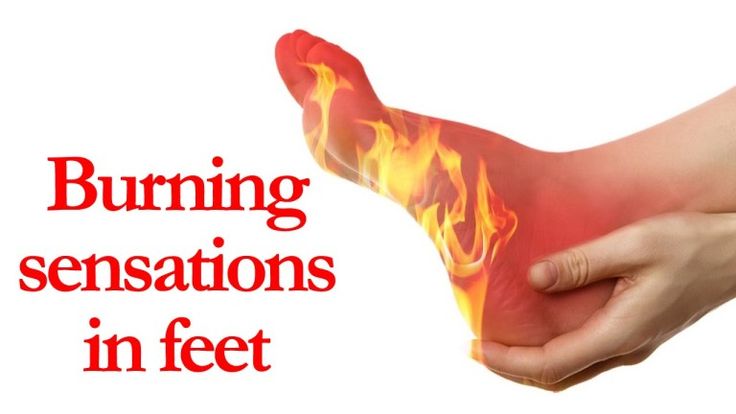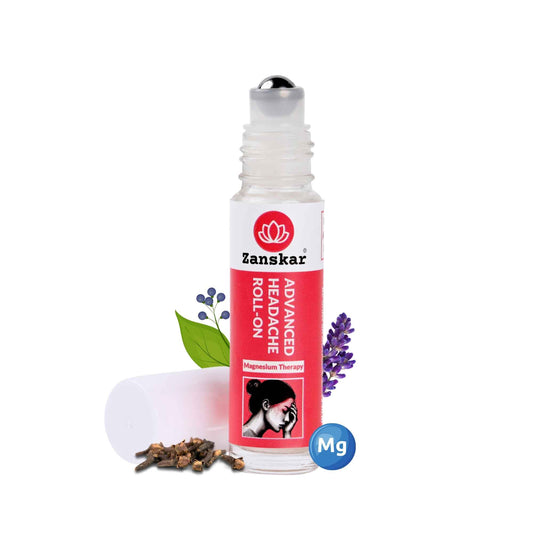
9 Causes of Burning in the Feet

Burning feet syndrome (BFS), or burning sensation in feet, is when a person feels sharp burning sensation in the foot, a condition which often exacerbates at night.
The sensation of burning feet can come from a wide range of conditions. It’s important to determine a cause so you can receive treatment. Some causes, such as a foot fungus like athlete’s foot or shoes that are too tight, can be remedied easily. In some cases, the cause is unknown.
1. Diabetic neuropathy
Years of uncontrolled high blood sugar can gradually damage your blood vessels and nerves. High blood sugar reduces the transmission of signals from the nerves. This can affect sensation in various parts of the body, including the feet. High blood sugar also weakens the blood vessel walls that carry oxygen and nutrients to the nerves.
The nerve damage can occur throughout your body.
Your risk for neuropathy increases if you:
- have obesity
- have high blood pressure
- smoke cigarettes
- drink alcohol
There are different types of neuropathy, but peripheral neuropathy is the most common type and the one most likely to affect the feet and legs. About 40% of people with diabetes have peripheral neuropathy, according to the National Institute of Diabetes and Digestive and Kidney Diseases.
Peripheral neuropathy can cause a burning feeling in your feet. Less frequently, it can affect the arms and hands.
2. Alcohol use
People who consume a lot of alcohol are at risk of another type of nerve damage called alcoholic neuropathy. It can cause pain, tingling, and weakness in the feet.
People may also notice:
- muscle weakness
- problems with gait
- burning pain
- hypersensitivity to pain
Treatment involves stopping alcohol use and following a balanced diet that provides the necessary nutrients, especially B vitamins. These strategies can help prevent symptoms getting worse and may repair the damage in some cases.
3. Nutritional deficiencies
A lack of some B vitamins in the diet can result in a sensation of burning feet.
In today’s population, especially among older people, nerve damage may stem from deficiencies in:
- vitamin B12
- vitamin B-6
- vitamin B9 (folate)
These vitamin B deficiencies can cause burning feet and muscle coordination problems. In fact, during World War II, an estimated 33% of American prisoners of war experienced burning feet syndrome caused by malnutrition.
4. Hypothyroidism
An underactive thyroid changes the balance of hormones in your body. It can lead to widespread symptoms, including nerve damage. Peripheral neuropathy may be an early sign of hypothyroidism, according to a 2016 study
5. High Blood Pressure
6. Infectious diseases
Nerve involvement can occur with various infections, and this could lead to burning pain in the feet. They include HIV, Syphilis and Shingles.
Ask your doctor about testing if you think you have an infection and are experiencing burning in your feet.
7. Kidney disease
When your kidneys stop functioning properly, toxins build up in your blood. Various complications can arise, including peripheral neuropathy, symptoms of which include burning foot pain.
Up to 10% of people with kidney disease may also experience swelling and tenderness in the lower legs with burning foot pain.
People who undergo dialysis may have burning foot pain due to nutritional deficiencies, as dialysis removes thiamine, or vitamin B1, from the blood. However, this is rare now as most people receive supplemental thiamine with their treatment.
Kidney failure can also cause:
- swelling
- weakness and numbness
- joint pain, stiffness, or fluid
8. Athlete’s foot
Athlete's foot is a common fungal infection (caused by a fungus). Athlete's foot causes an itchy, stinging, burning rash on the skin on one or both of your feet. A common symptom is itching between the toes or on the soles of the feet, but there may also be:
- blisters on the feet that cause itching and burning
- cracking and peeling skin between the toes or on the soles of the feet
- dry skin on the sides or soles of the feet
- toenails that pull away from the nail bed or appear discolored, thick, and crumbly
9. Complex regional pain syndrome (CRPS)
Complex regional pain syndrome (CRPS) occurs in a limb, most commonly after an injury or surgery. It involves nerve damage that affects the signaling from the brain and spine.
Symptoms include burning pain, tingling, hypersensitivity to a pain trigger, swelling and changes in skin color or texture
Over 90% of cases develop after a nerve injury or trauma. However, not everyone who experiences an injury will develop CRPS.
The length of time a person’s feet may burn depends on the cause and the treatment they receive.
If you seek treatment for athlete’s foot, for example, it may clear up within a few weeks. Some causes, however, such as peripheral neuropathy, may be harder to treat. In some cases, the damage may be irreversible.
Treatment for BFS depends on the underlying cause. A doctor may treat BFS using the following:
- antifungal prescription
- shoe inserts or change of shoe
- vitamin supplements
- thyroid supplements
There are also a number of home remedies for BFS that a person can try. Here are 9 that may provide relief:
1. Epsom salt
People often use Epsom salt to treat a variety of issues, including pain and the symptoms of athlete’s foot.
Epsom salt is a natural compound that contains magnesium sulfate. It has a number of uses including:
- decreasing the symptoms of athlete’s foot
- reducing inflammation
- exfoliating the skin
- reducing odor
People place Epsom salt into warm water, before soaking their feet in the mixture for 20–30 minutes.
Epsom salt foot baths can treat the symptoms of BFS. However, a person with diabetes should check with their doctor before using an Epsom salt bath. This is because Epsom salt may raise the risk of foot damage in people with diabetes.
2. Rest, ice, compression, and elevation (RICE)
A person can help reduce the symptoms of tarsal tunnel syndrome by using RICE. This involves resting the foot, applying ice to the ankle, using compression, and elevating the foot.
RICE can help reduce swelling and inflammation, which can help reduce the symptoms of BFS.
3. Turmeric supplements
Turmeric contains the compound curcumin. Curcumin has anti-inflammatory, antioxidant, and antimicrobial effects and it may be an effective treatment for several skin conditions.
Curcumin is also an effective treatment for a variety of neurological disorders.
A person may be able to use turmeric supplements to treat BFS related to damaged nerves and other nerve pain. A person can take turmeric in supplement form, or they can take 1 teaspoon of turmeric powder with 1/4 teaspoon ground pepper up to three times per day.
A 2013 study suggests that if a person takes curcumin in the early stages of neuropathy it may have a positive effect. The study states that curcumin can help prevent chronic neuropathy from developing.
4. Fish oil
Fish oil has anti-inflammatory properties which are helpful in reducing pain and discomfort. If a person has BFS as a result of diabetes they may wish to treat their BFS with fish oil.
A study suggests that fish oil can slow the progression and even reverse diabetic neuropathy.
Fish oil supplements are available over the counter (OTC). A person can take between 2,400 and 5,400 mg of fish oil per day.
5. Ginger
Ginger oil has anti-inflammatory properties and may be an effective treatment for BTS.
A study showed that massage with aromatic ginger oil was more effective in reducing back pain and disability than traditional massage.
Many ginger oils are available OTC. You can consider buying Zanskar Pain Healing Oil too, as it has pure high-grade ginger extract.
A 2020 study looked at the use of ginger extract in mice. It suggests that ginger extract may be an effective treatment against diabetic neuropathy.
6. Lidocaine or capsaicin
Lidocaine is a local anaesthetic. Medical professionals often use lidocaine to numb the skin before they carry out certain procedures such as taking blood.
Capsaicin is present in chilli peppers and offers natural pain relief. A 2011 study showed that capsaicin is effective in helping manage pain.
Some medical professionals propose topical creams containing capsaicin and lidocaine as effective treatments for the symptoms of diabetic neuropathic pain. They are both common treatments for BFS in people with diabetes.
You can consider buying Zanskar Pain Healing Cream too, as it has pure high-grade capsaicin extract.
7. Foot massage
Massage increases blood flow to an area of the body. Therefore, if a person suffers from BFS they can massage their feet to improve circulation and blood flow to the areas that need it. This can help treat some of the symptoms of BFS.
Conclusion
In conclusion, we have explored a variety of causes and treatments for the burning sensation in the feet. There are multiple options available through medical intervention to provide relief. If your feet are signalling discomfort, pay heed to the alarm and consult with a healthcare professional without delay. Get your symptoms discussed and let the medicos identify the right treatment plan for you. With knowledge, care and the right treatment, you can make sure that your next step forward is comfortable.
FAQ's
1. Is burning feet related to diabetes?
Yes, burning feet can be associated with diabetes. Peripheral neuropathy, a common diabetes consequence, causes nerve damage in the extremities, resulting in feelings such as burning, tingling, or numbness in the feet.
2. Is burning feet serious?
3. What foods cause burning feet?
4. Can burning feet be cured?
Learn More About Zanskar Health
If you have joint or muscle pain that makes it hard to move, Zanskar offers the most advanced full stack pain relief solutions for you.
Now available to purchase, Zanskar® Advanced Pain Care Products have a unique formulation of natural bioactive ingredients and provide lasting relief from muscle and joint discomfort that you can feel good about. Get your fix before stocks run out - buy now.
You can also gain access to therapeutic exercises and stretches for your condition by downloading the Zanskar Health physiotherapy mobile app. Additionally, you’ll have a personal care team to guide, support, and tailor our program to you, including behavioral and nutritional coaching.
Download our mobile app here 👉 download and track your exercise streak.
Medical Review: This article is written by Dr Nishtha Mittal (Senior Health Content Editor at Zanskar Health) and has been medically reviewed by the medical team at Zanskar Health. This article and its contents are provided for educational and informational purposes only and do not constitute medical advice or professional services specific to you or your medical condition.







